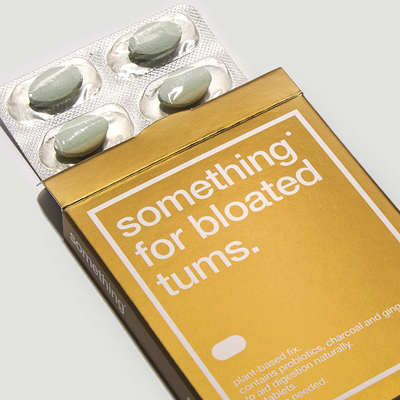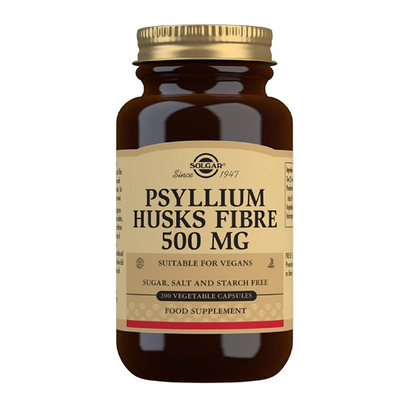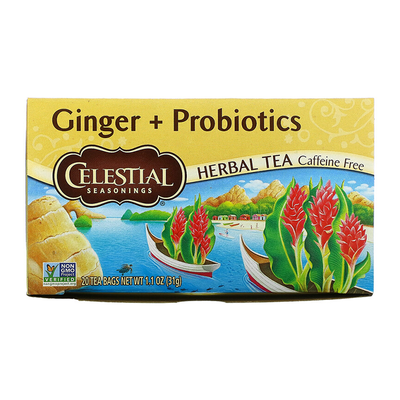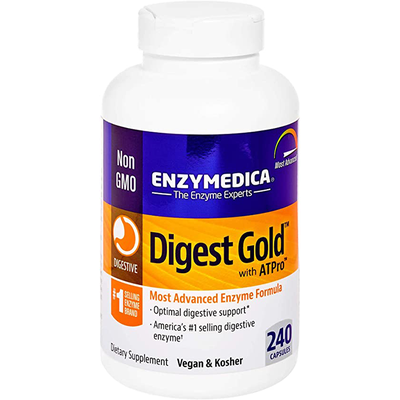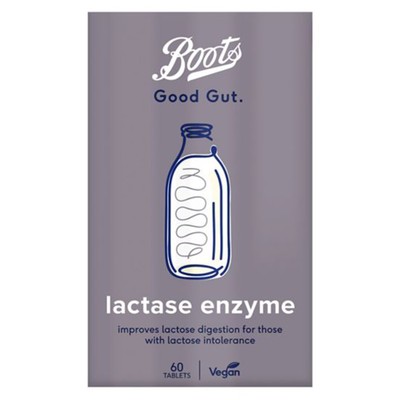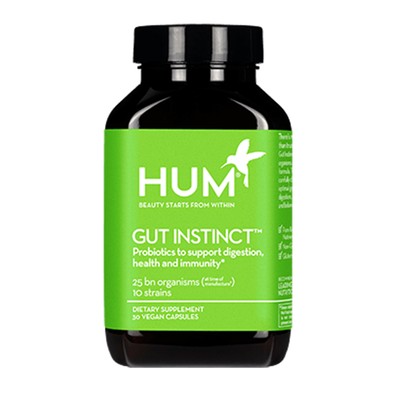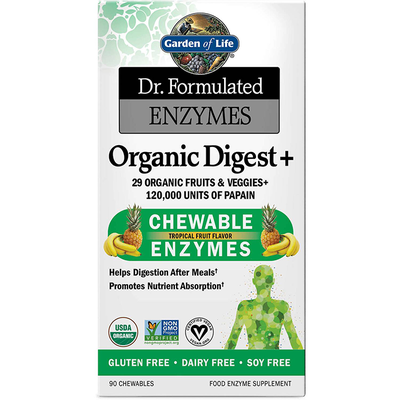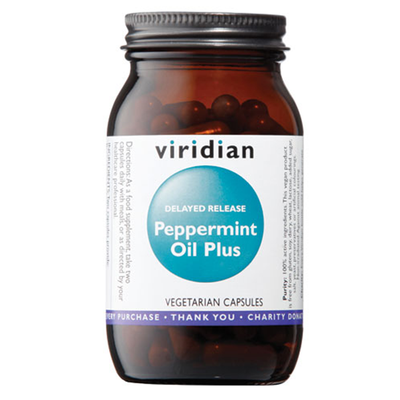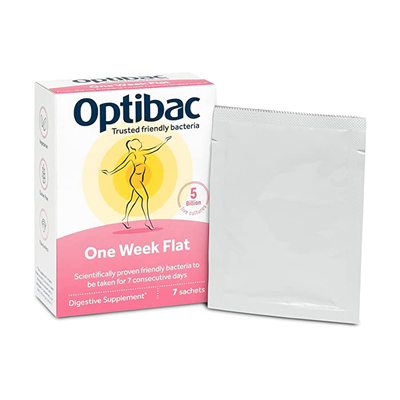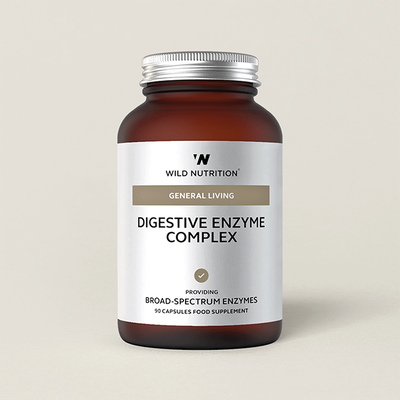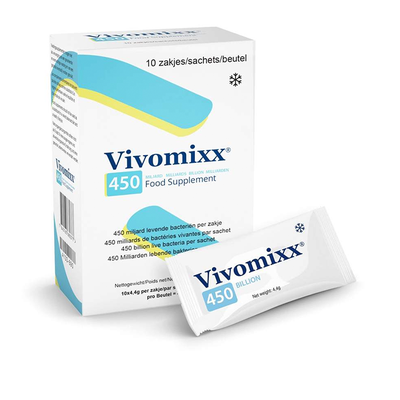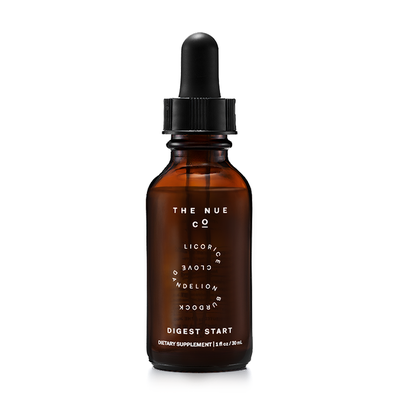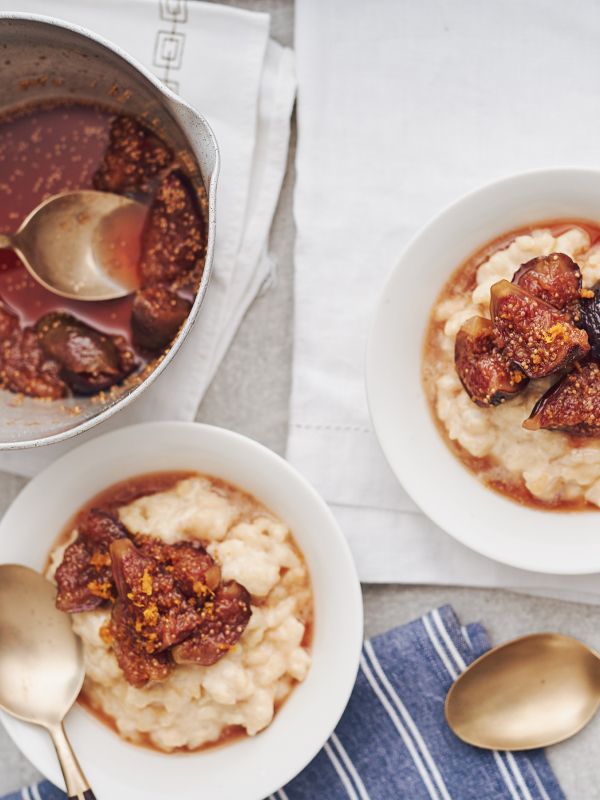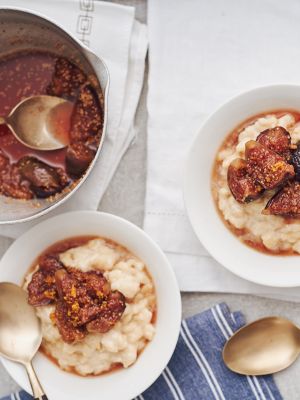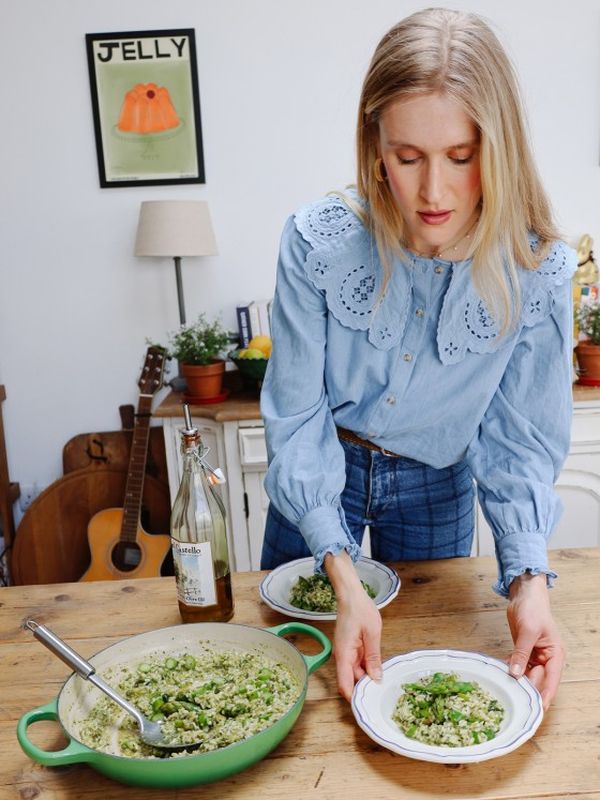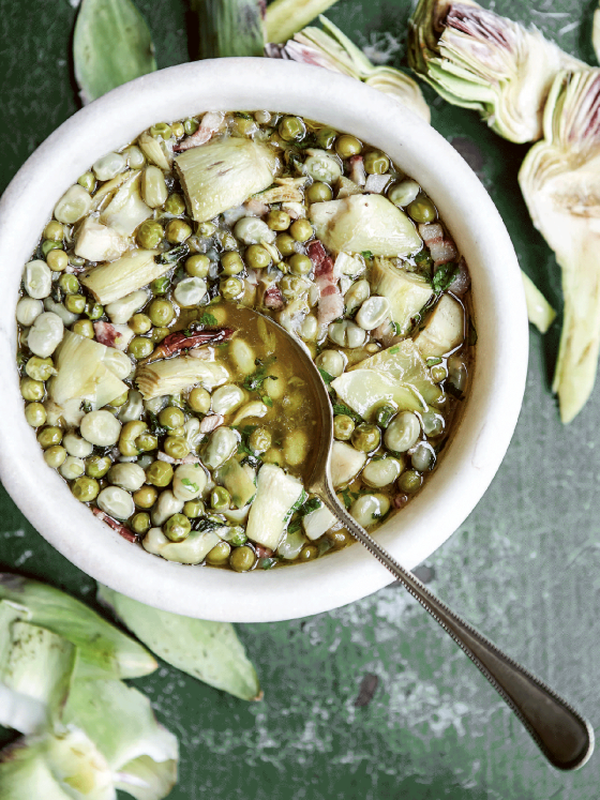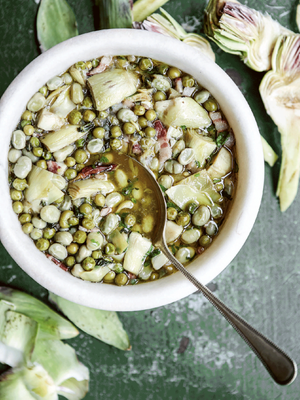
Bloating 101: From Causes To Treatment
All products on this page have been selected by our editorial team, however we may make commission on some products.
First of all, what causes bloating?
“Bloating is air that has accumulated in the gut and common causes include swallowing air, not digesting food properly and an imbalance within your gut bacteria. Air is swallowed whenever we chew food, eat quickly, or drink too fast, and if you don’t chew your food properly, this can cause problems with digestion. Bloating can also happen when you have low stomach acid or if your body doesn’t produce enough digestive enzymes, which, as the name suggests, play a crucial role in breaking down food into easily absorbable particles. Bloating can also be a sign your gut is struggling to digest a certain food – your gut bacteria feed on the food you eat, and produce gases such as carbon dioxide, hydrogen and methane as a by-product, which can cause bloating in the abdominal area.” – Leyla Moudden, naturopath and educator for Enzymedica UK
How common is it?
“Feeling bloated is a major complaint in many individuals with irritable bowel syndrome (IBS) and the prevalence of IBS in women is 67% higher than in men. Women are also more prone to bloating due to hormonal fluctuations at certain times of the month.” – Marilia Chamon, nutritional therapist and gut health specialist
What’s the link between hormones and bloating?
“It all comes down to hormonal fluctuations, which can affect gut motility and sensitivity. As soon as ovulation hits, oestrogen levels decrease, which can lead to bloating and constipation. When you reach the luteal phase of your cycle, however, which is the time between ovulation and your next period, oestrogen continues to decrease while progesterone levels rise and then drop, contributing to symptoms such as abdominal pain loose bowels, nausea and bloating.” – Marilia
What about stress – is it true this can cause tummy problems?
“Yes – the body needs to be in a relaxed state in order to digest food properly. Stress activates our ‘fight, flight, freeze’ mode and sends the body a message every biochemical reaction can wait, as it thinks you are experiencing high levels of danger. So, if you eat when stressed, chances are you’ll suffer with some form of tummy issue. Stress also impacts stomach acid production, and without adequate amounts of stomach acid, the body will struggle to digest whatever it is you are eating. Moreover, chronic stress alters stomach and bowel motility, leading to gas, bloating and discomfort, and can even decrease the diversity of your good gut bacteria.” – Marilia
When it comes to food, what are the biggest bloating culprits?
“High fibre foods, such as beans, lentils, chickpeas and certain vegetables, can trigger gas production, which is actually a positive thing, as it shows your gut bugs are at work, but too much fibre can trigger bloating and leave you feeling uncomfortable. That’s not to say removing fibre is the solution, but it’s about understanding your personal tolerance, and gradually increasing your fibre intake. If you cut out fibre, studies show you have an increased likelihood of constipation, which in itself can also be a cause of bloating. At the same time, if you have IBS, you may benefit from cutting back on FODMAPs – a group of short-chain carbohydrates that aren’t completely absorbed in the small intestine. Instead, they end up in the large intestine, which can trigger bloating. FODMAPs, which are found in many foods, including onions, rye and honey, create a food frenzy for your gut microbes. If you don’t have IBS-related symptoms, FODMAPs won’t cause problems, but for those who do, they can trigger pain and bloating.” – Clarissa Lenherr, nutritionist
What about dairy?
“People often say dairy makes them bloated, and this could be because they lack the lactase enzymes needed to break down lactose, which is the sugar in milk. However, this isn’t the case for everyone – your digestive capacity is dictated by its acidity and the volume of stomach acid, and also by the number and type of digestive enzymes you naturally produce. For other people, cruciferous vegetables, such as cauliflower and cabbage, are a problem because they don’t produce the enzymes required to break down the galactans (complex carbohydrates) in these particular vegetables.” – Leyla
How do you know if a food intolerance is causing you to bloat?
“There are currently no reliable tests to accurately diagnose food intolerances apart from lactose, so the gold standard is an elimination diet followed by a reintroduction phase. If your symptoms – in this case bloating – return once that specific food is reintroduced, then it is best avoided. Remember that symptoms of a food intolerance can present in many ways, not just in the gut – skin problems, asthma, recurrent sinus infections, muscle and joint pain, brain fog, headaches and fatigue are also common.” – Marilia
Does how you eat matter?
“Yes – if you eat quickly or on-the-go and don’t chew properly, you are more likely to bloat. Digestion starts in the mouth – your teeth help break down food and your saliva contains enzymes that assist further in this process. If you eat too quickly, food moves to the stomach in bigger pieces than it should, making it trickier to digest. In addition, eating too quickly can make you swallow excessive air. You should aim to chew each mouthful between ten and 20 times to avoid bloating.” – Marilia
Are there any supplements that can help?
“Peppermint oil has long been used for bloating relief as it relaxes the muscles in the digestive tract. Ginger can also help break down and expel intestinal gas – try sipping on ginger tea between meals. Probiotics have a time and place, but you need to make sure you are taking the right one. If you are trying to get bloating under control, look for strains that have been tried and tested specifically for bloating – Bifidobacterium breve, Bifidobacterium infants, Lactobacillus casein or Lactobacillus plantarum are worth looking out for.” – Marilia
“As most bloating is caused by gases such as methane emitted from undigested foods, digestive enzymes are the best first step when dealing with bloating. Taking a full-spectrum enzyme formula, such as Enzymedica’s Digest Gold, with the first bite of food can have an instant effect on the severity of bloating.” – Leyla
What about probiotic foods?
“Fermented foods can provide a wide variety of beneficial gut bacteria helping restore balance in the gut, which consequently may reduce digestive symptoms like bloating. However, like dietary fibre, if you go from not eating fermented foods to eating lots too quickly, it can trigger symptoms like bloating and excessive gas. Individuals with IBS will most likely experience more intense symptoms due to the high FODMAP content in fermented foods, and individuals with histamine intolerance should avoid it altogether.” – Marilia
At what point should you seek help?
“If your bloating lasts for a long amount of time, is frequent and not relieved by taking a full-spectrum digestive enzyme, then consider booking in with a nutritional therapist or naturopath to help you identify the root cause of your bloating. Most bloating can be eliminated through an adjustment in your diet and specific supplementation, but if the bloating is accompanied with pain or major change in your appetite, then don’t hesitate to speak to your GP.” – Leyla
For more information visit GutfulnessNutrition.com, Enzymedica.co.uk and ClarissaLenherr.com
Shop our product edit below...
DISCLAIMER: Features published by SheerLuxe are not intended to treat, diagnose, cure or prevent any disease. Always seek the advice of your GP or another qualified healthcare provider for any questions you have regarding a medical condition, and before undertaking any diet, exercise or other health-related programme.
DISCLAIMER: We endeavour to always credit the correct original source of every image we use. If you think a credit may be incorrect, please contact us at info@sheerluxe.com.
